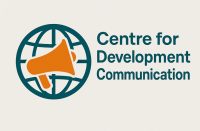As part of my baseline research to design effective communication approaches that could enhance antenatal care among rural women in Nasarawa State, I engaged with women across three rural communities: Uke, Gbagalape, and Gidan Sakara.
My field engagements revealed that participatory communication—where communities are not just informed but actively involved—has played a critical role in improving women’s understanding and acceptance of antenatal care services.
At the Gbagalape Healthcare Centre, located in the Nyanya area of the state, a community health worker shared during a key informant interview that the facility dedicates one day each week to host open community dialogues.
These sessions bring women together to discuss antenatal care and family planning using local languages. Women are encouraged to ask questions, share personal experiences, and seek clarifications in an atmosphere of mutual respect.
According to the health worker, this community-led knowledge-sharing approach has resulted in an impressive 77% increase in antenatal care uptake in the area. Beyond that, he noted a steady rise in the adoption of family planning practices.
The use of storytelling has also emerged as a culturally grounded tool for education. Women from the Kudu community, for instance, now share their personal journeys with antenatal care and family planning, inspiring others in the process.
In focus group discussions and key informant interviews conducted in Uke and Gidan Sakara, 93% of the women reported that they learned about antenatal care and family planning through teachings and storytelling led by Traditional Birth Attendants and experienced mothers in the community.
One woman from Uke shared a powerful observation:
“People here started taking antenatal care and family planning seriously when our Traditional Birth Attendants began teaching us. If anyone wants to educate us, they must work through them and our health workers—because that’s who we trust.”
She expressed skepticism toward conventional mass media campaigns:
“We don’t believe the noise on the radio. It is what our healthcare workers and birth attendants tell us that we follow. You people who support government and make noise on radio about our women’s health—do you even know the real issues? Come here first. Ask us questions.”
This field experience reinforces the need to anchor health communication in participatory processes, rooted in local culture, language, and trusted relationships. It also challenges development actors to re-evaluate top-down campaigns that often ignore local realities.
— Audu Liberty Oseni
Director, Centre for Development Communication
